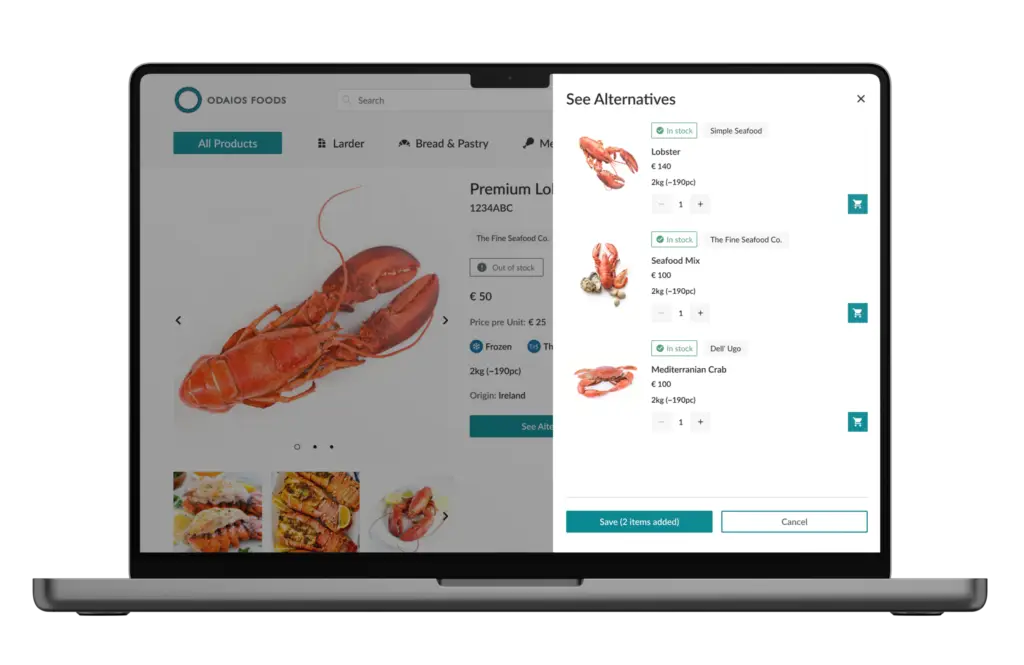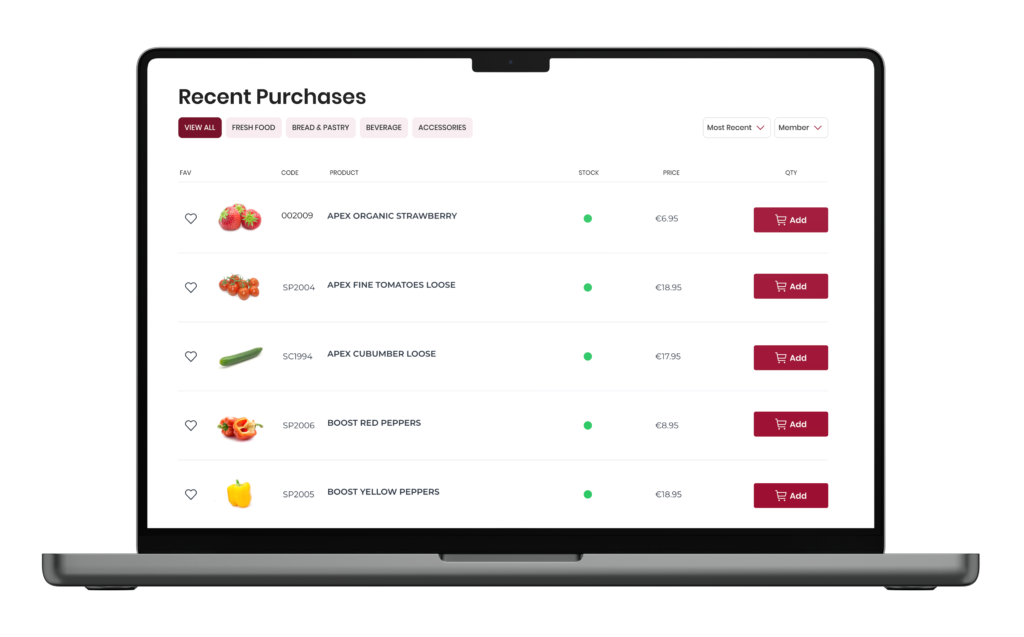When a busy restaurant manager logs in at 10pm to check invoice history, reorder her staple pantry items, or apply a custom discount, she’s not hoping someone from your sales team is online. She expects the platform to handle it. Quietly, accurately, instantly. This expectation isn’t a trend. It’s how modern B2B commerce operates.
At Apex, we’ve designed our solution around this reality. Buyers don’t want to be handheld; they want to be empowered. That’s why we’ve built account portals, automated billing access, simplified checkouts, and personalised pricing tools into the experience.
But what’s driving this shift toward self-service?
Forrester reports that 63% of B2B sales leaders expect digital buying behaviour to significantly impact their organisations within two years, yet only 37% have acted on digitising the buyer journey. That gap speaks volumes.
Today’s buyers, particularly Millennials and Gen Z (who now make up 71% of B2B purchasing roles), don’t want to call for a quote or email for product availability. They expect consumer-grade convenience in a business context. Think mobile-first browsing, always-on support, and a clear path to checkout.
In response, platforms like Apex are evolving to let buyers handle their needs directly, without waiting for human intervention. Once we sync your ERP to the platform, it opens up many possibilities for our additional self-serve add-on feature.

B2B sales cycles are getting longer, not shorter. According to Forrester, the average buying decision now involves 13 internal and 9 external stakeholders. When so many people are involved, clarity and speed become vital.
Self-service tools provide both. Whether it’s accessing a pricing tier negotiated six months ago or reviewing past orders without looping in account reps, automation keeps things moving. That’s exactly why Apex enables businesses to display real-time custom pricing and volume discounts for each logged-in user. No back-and-forth needed once your ERP is conntected.
In fact, 87% of B2B buyers want to self-serve all or part of their journey. It’s not about cutting out people, but about giving buyers the tools to act without delays.
What makes B2B self-service different from its B2C counterpart is complexity. Variable pricing, contract-specific catalogues, negotiated terms, and split payment methods don’t lend themselves to one-click checkouts. That’s why generic solutions fall short.
Apex addresses this by tailoring the experience for each customer account. Logged-in buyers can see relevant deals, access saved carts, and process reorders with just a few clicks. A key element is customers can manages all aspects of their account online, including:
Integration with the ERP and payments systems also empowers customers to easily pay all balances due in an instant. Everything is streamlined, but nothing is oversimplified.
Our goal isn’t to replace your sales team, rather to let them focus on strategic conversations rather than admin tasks buyers can handle themselves.

The benefits of self-service aren’t limited to the buyer. Vendors see increased order volume, reduced friction, and lower support overhead. Plus, self-service tools offer insights into buyer behaviour, helping businesses refine product offerings and promotions.
Platforms like Apex are built with this feedback loop in mind. By tracking buyer actions, you can see what’s working, what’s getting skipped, and where optimisations should happen next.
It also reduces sales bottlenecks. With a digital-first approach, even complex B2B processes, like submitting purchase orders, reviewing contract pricing, or handling bulk reorders, can be executed online, at any time, by anyone in the buying team.
The self-service movement isn’t about replacing relationships with robots. It’s about recognising that the best B2B experiences are those that put control in the buyer’s hands, while still keeping sales, support, and service teams available when truly needed.
If you’re still treating digital as a supplement to traditional B2B sales, you’re already behind. Today, digital is the core channel, and self-service is the expectation. Apex exists to help businesses meet that moment.
Contact us today to schedule a quick free demo or just to discuss your B2B Commerce needs with our experts and find the best solutions for you.